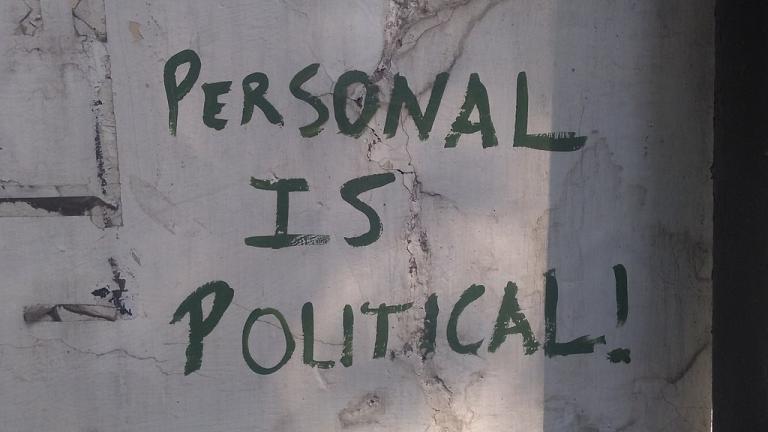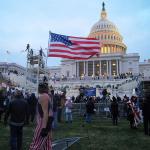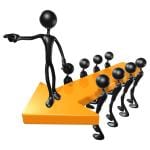
Today, virtually everything has become political: religion, relationships, education, entertainment, the arts, working, buying, eating, health, technology, etc., etc.
Our intellectuals teach us that every thing is political, that our culture and morality and laws are nothing more than masks for power, whether we exercise that power over others, or others exercise it over us. Meanwhile, many of us cannot drink a cup of coffee without worrying about the political status of the people who picked the beans and the environmental impact of how the coffee was made, with the coffeeshop regaling us with political messages and reinforcing in its customers a political identity.
How did it happen that ordinary life has become so charged with political meaning?
Kevin D. Williamson has written a piece entitled We’re All Jacobins Now, with the deck “Across a great spectrum of issues, from trade to military policy to entitlements, the policy preferences of the populist Right broadly overlap with those of the populist Left.”
He compares, for example, a 2016 Bernie Sanders speech with a Donald Trump speech from that same year, showing how they were calling for pretty much the same thing. In the course of his discussion, he traces this politicization on both the right and the left to the French Revolution. He quotes François Furet’s Interpreting the French Revolution (my bolds):
Here I am using the term ideology to designate the two sets of beliefs that, to my mind, constitute the very bedrock of revolutionary consciousness. The first is that all personal problems and all moral or intellectual matters have become political; that there is no human misfortune not amenable to political solution. The second is that, since everything can be known and changed, there is a perfect fit between action, knowledge, and morality. That is why the revolutionary militants identified their private lives with their public ones and with the defense of their ideas. It was a formidable logic, which, in laicized form, reproduced the psychological commitment that springs from religious beliefs. When politics becomes the realm of truth and falsehood, of good and evil, and when it is politics that separates the good from the wicked, we find ourselves in a historical universe whose dynamic is entirely new. As Marx realized in his early writings, the Revolution was the very incarnation of the illusion of politics: It transformed mere experience into conscious acts. It inaugurated a world that attributes every social change to known, classified, and living forces; like mythical thought, it peoples the objective universe with subjective volitions, that is, as the case may be, with responsible leaders or scapegoats. In such a world, human action no longer encounters obstacles or limits, only adversaries, preferably traitors. The recurrence of that notion is a telling feature of the moral universe in which the revolutionary explosion took place.
So politics–not science, as some have thought–takes the place of religion, becoming the arbiter of morality, the source of personal meaning, the point of integration of every other facet of life. While religion has sometimes resulted in violent conflict, it is also a source of benevolence and unity. But politics is intrinsically a matter of conflict, having to do with contending forces competing for power. Politics is humanistic, affirming that all problems can be solved and that there are no limits to what human beings can achieve, only adversaries who can be liquidated in reigns of terror or gulags.
Christianity, by contrast, teaches that there are limits, both to what we can achieve and to how we should act, that love is more important than power, and that politics is far from being everything.
Photo: Graffiti at the Ambedkar University Delhi, by Fredericknoronha, CC BY-SA 4.0 <https://creativecommons.org/licenses/by-sa/4.0>, via Wikimedia Commons












